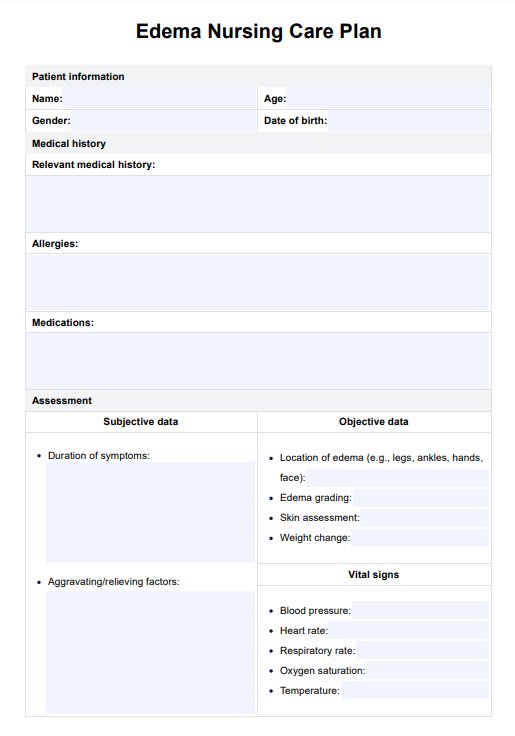The edema nursing care plan can address multiple types of edema, including peripheral edema, pulmonary edema, and generalized edema. The care plan allows healthcare providers to monitor vital signs, assess lung sounds, and track subjective data to tailor the treatment regimen to the patient’s specific needs.

Edema Nursing Care Plan
Streamline edema management with our Edema Nursing Care Plan Template - efficient, user-friendly, and secure for optimal patient care.
Edema Nursing Care Plan Template
Commonly asked questions
Patient education is crucial in managing edema. Educating patients on lifestyle modifications, such as reducing sodium intake and elevating limbs, helps prevent fluid buildup. Additionally, healthcare providers can guide patients in adhering to their treatment regimen to enhance outcomes and prevent complications like skin breakdown.
The edema nursing care plan helps prevent complications by regularly monitoring vital signs, assessing lung sounds, and addressing potential issues such as skin breakdown. By focusing on a comprehensive treatment regimen, healthcare providers can reduce the risk of complications and improve patient outcomes.
EHR and practice management software
Get started for free
*No credit card required
Free
$0/usd
Unlimited clients
Telehealth
1GB of storage
Client portal text
Automated billing and online payments











